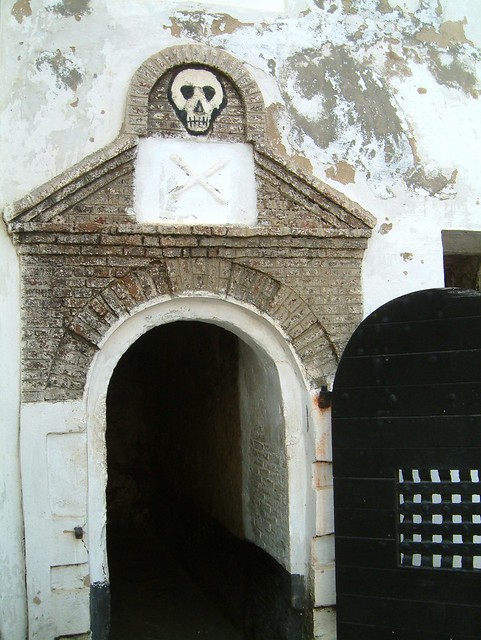
Psalm 132 (New International Reader's Version)
1 Lord, remember David and all of the hard times he went through. 2 Lord, he took an oath. Mighty One of Jacob, he made a promise to you. 3 He said, "I won't enter my house or go to bed. 4 I won't let my eyes sleep. I won't close my eyelids 5 until I find a place for the Lord. I want to build a house for the Mighty One of Jacob." 6 Here are the words we heard in Ephrathah. We heard them again in the fields of Kiriath Jearim. 7 "Let us go to the LORD's house. Let us worship at his feet. 8 Lord, rise up and come to your resting place. Come in together with the ark. It's the sign of your power. 9 May your priests put on godliness as if it were their clothes. May your faithful people sing with joy." 10 In honor of your servant David, don't turn your back on your anointed king. 11 The LORD took an oath and made a promise to David. It is a firm promise that he will never break. He said, "After you die, I will place one of your own sons on your throne. 12 If your sons keep my covenant and the laws I teach them, then their sons will sit on your throne for ever and ever." 13 The LORD has chosen Zion. That's the place where he wants to live. 14 He has said, "This will be my resting place for ever and ever. Here I will sit on my throne, because that's what I want. 15 I will greatly bless Zion with everything it needs. I will give plenty of food to the poor people living there. 16 I will put salvation on its priests as if it were their clothes. God's faithful people will always sing with joy. 17 "Here in Jerusalem I will raise up a mighty king from the family of David. I will set up the lamp of David's kingdom for my anointed king. Its flame will burn brightly forever. 18 I will put shame on his enemies as if it were their clothes. But the royal crown he wears will shine with glory." -- Psalm: 132

From the Presbyterian Record on Nov, 1999, "When the wooden shoe is on the other foot: … on the Ghana coast where Africans were rounded up for the slave trade," by Arthur Van Seters -- When the students at Knox College gave me a T-shirt last April, they didn't know I would be travelling to Ghana this summer. Even if they did, they likely would not have thought about the Dutch connection. The T-shirt in question was to be worn if I were elected Moderator. It was inscribed with the slogan "If you aren't Dutch, you aren't much!" The jesting, of course, was well-intended.

Then, I found myself on a moderatorial visit to Nigeria and Ghana. Toward the end of our visit, Rowena, Rick Fee and I stood in a great white castle on the coast of Ghana just west of Cape Coast. The place is called Elmina. It was one of many slave castles in West Africa. Elmina was special to the Dutch who had captured it from the Portuguese in a surprise attack by land. The Dutch eventually handed it over to the British. And, yes, some people, in what was formerly called the Gold Coast, sold their African brothers and sisters to the slavers.
A slave castle is a terrifying place. It still echoes with the treacherous memories of human degradation as thousands upon thou sands of Africans were herded like cattle into the dungeons. Many died before being transported to Europe, Britain or the Americas. Most didn't make it across the seas, and those who did were slaves for life.

What was additionally offensive was the Dutch chapel next to the soldiers' mess hall. Carved in stone and written in Dutch were the words of Psalm 132:13: "The LORD has chosen Zion; he has desired it for his habitation." I felt a deep sadness come over me as I read these words; then, anger and shame. This was not Zion, and God was clearly not at home in that room; God was immediately below the chapel floor, weeping in the dungeons.
There are still lots of Dutch names along the Ghana coast, descendants of the slave women chosen by the Dutch governor or other officers to satisfy their lust. They were not sold to the slave ships but kept as so-called "half-breeds." They were allowed to serve in the castle. Later, they moved into the nearby village where they were resented because they seemed to regard themselves as superior. So African was pitted against African.

As we were driving back to Accra, I wondered aloud whether any of the countries involved in the slave trade had ever apologized. It is estimated the African slave trade as a whole created a holocaust of 30 million people. I wonder, specifically, if the Reformed Church in the Netherlands has ever seriously discussed this. I could ask the same of Roman Catholics in Portugal or of the Church of England in Britain.
There is still healing to be done -- healing for the people of Ghana and healing for the Dutch (and others) whose heritage is drenched in so much blood. Healing begins with confession, including corporate confession for the sins of the past. It is time to face these histories and deal with them. (source: Presbyterian Record, Nov, 1999)

No comments:
Post a Comment